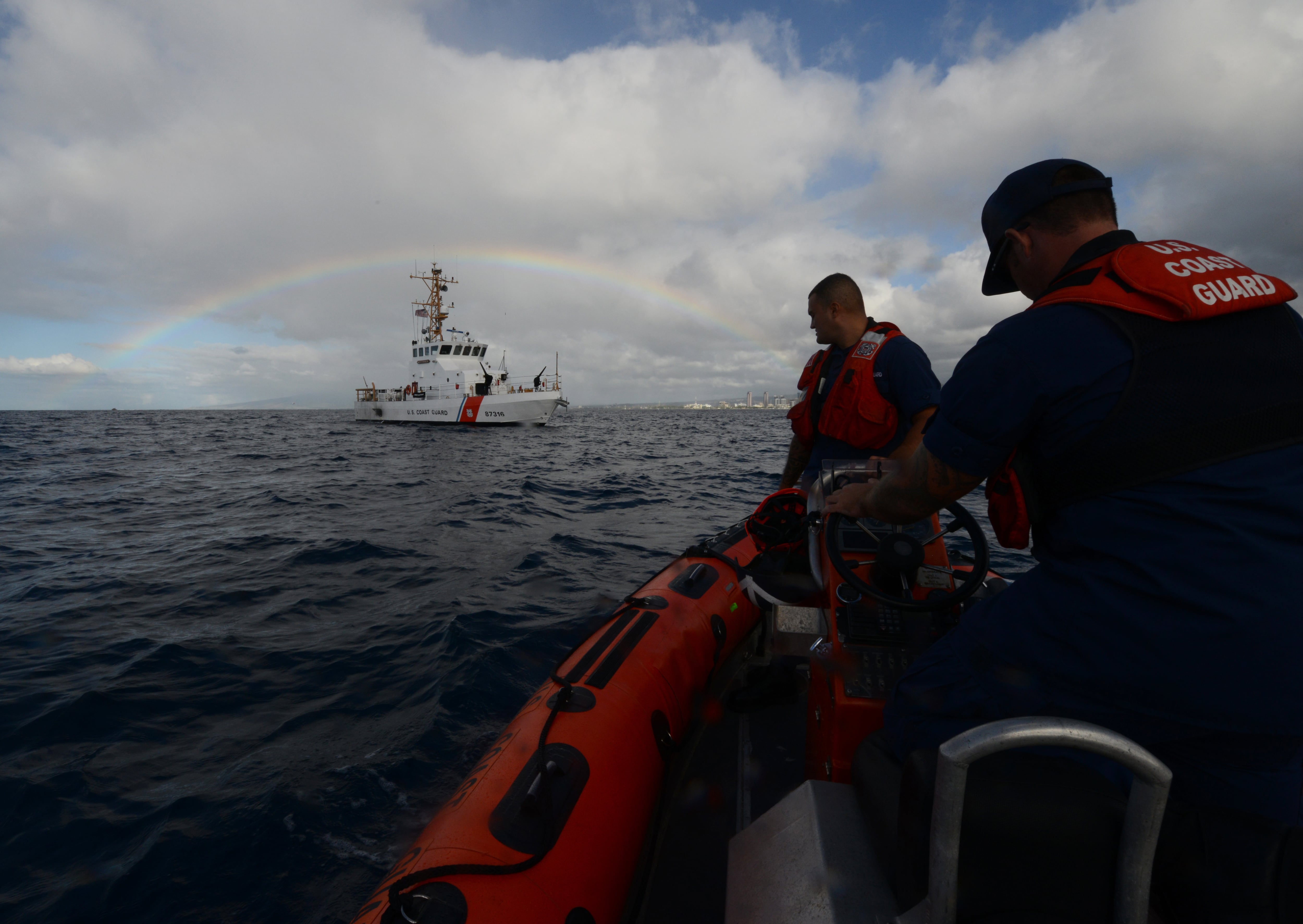A soldier who faked his own suicide in December so he could allegedly go absent without leave in Mexico was charged in federal court Wednesday for sending a false distress message to the Coast Guard, launching a 10-hour search party and wasting $172,000, according to court records.
Devin M. Schmidt, 20, was assigned to Joint Base Lewis-McChord, Washington, until March 25, when he received an other than honorable discharge at the rank of private for his attempted AWOL scheme. He was originally charged under the UCMJ but took the lower discharge in exchange for an administrative separation without a criminal conviction.
Schmidt and his cousin, Ryen E. Bell, 21, were ultimately charged by the Justice Department, however, according to a criminal complaint filed in U.S. District Court in Tacoma.
The scheme began Dec. 18, when Schmidt filmed a video saying goodbye to friends and family at Fort Worden Historical State Park, which lies along the coast of the Puget Sound.
“I guess if you’re watching this, I’m no longer alive,” Schmidt said in the video. “I’ve been too depressed lately.”
Bell, who was in on the plot, brought a friend to the scene of the fake suicide video. There, they “found” Schmidt’s Army dog tags and an unlocked cell phone on a bluff above a 150-foot cliff. It fell off into a small area of eroded land before dropping further in the waters of the Puget Sound.
Bell then reported Schmidt’s video to his mother, who was unaware of the plot. She called local police in Port Townsend and a search quickly began for the missing soldier, believing he jumped from the cliff. Law enforcement organized search teams on the day of the fake disappearance, but determined they couldn’t start until the following morning due to severe weather that rolled into the area as nighttime approached.
The Coast Guard began searching for Schmidt in the Puget Sound at 6:30 a.m. on Dec. 19, while police searched the woodlands on the coast. The search party included Coast Guard H-65 and Navy H-60 helicopters, two 87-foot patrol boats and a 45-foot response boat from the Coast Guard. Weather conditions during the search were poor, with heavy rain, wind gusts between 20-40 mph and low visibility.

The search was ended at 4 p.m. and law enforcement began a debrief with Schmidt’s mother, who had grown suspicious. She told police that Bell reported Schmidt missing to her about four hours before the suicide video was sent to him. Schmidt had also previously asked his mother what she would do if he went AWOL from the Army.
Police then interviewed a friend of the two cousins who revealed that during the search effort, Bell showed the friend a Facebook message from an individual neither of them knew named “Jake Elbstein.” The message asked Bell to meet him at 6 p.m. on Dec. 19 at a McDonald’s restaurant in Port Townsend. The friend told police they believed the message was really Schmidt reaching out to Bell for the first time after faking his death.
The friend also told police that he, Schmidt and Bell had previously discussed faking a suicide to allow Schmidt to leave the Army and travel to Mexico to “fight cartels” as “freelance fighters.”
Police set up surveillance at the McDonald’s in Port Townsend and waited. Just before 6 p.m., Schmidt arrived at the establishment as planned and was arrested by police. Both Bell and Schmidt ultimately admitted to the plot, court records stated.
After faking his suicide, Schmidt spent the night of Dec. 18 in a porta-potty at the Haines Place Park and Ride in Port Townsend. Then, on Dec. 19, he snuck into his mother’s house and used her computer to create a fake Facebook account under the name “Jake Elbstein.”
At 3 p.m. that day, Schmidt sent Bell the message to meet at the McDonald’s and then immediately deleted the fake Facebook account. Bell told police he went along with the plan because he is a loyal and lifelong friend of Schmidt.
The two men are expected to appear in court on June 4. Attorneys for the charged men were not listed on court documents filed April 1. Making a false distress call to the Coast Guard is punishable by up to six years confinement, three years of supervised release, up to $100,000 in civil penalties and up to $250,000 in fines, according to the Justice Department.
Kyle Rempfer was an editor and reporter who has covered combat operations, criminal cases, foreign military assistance and training accidents. Before entering journalism, Kyle served in U.S. Air Force Special Tactics and deployed in 2014 to Paktika Province, Afghanistan, and Baghdad, Iraq.





